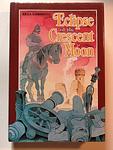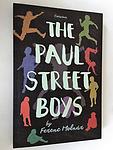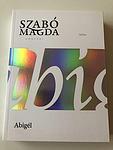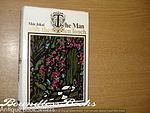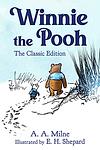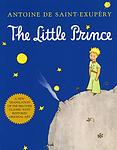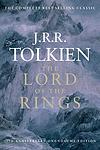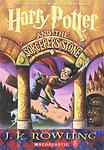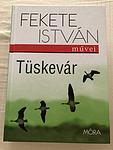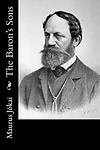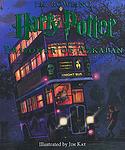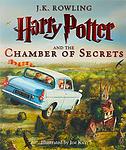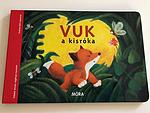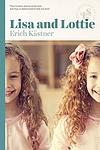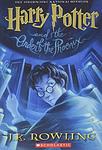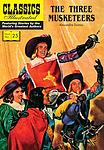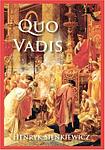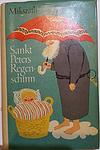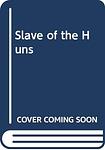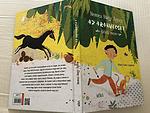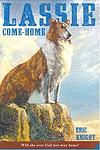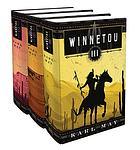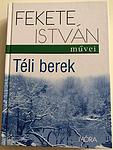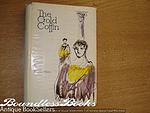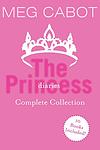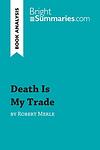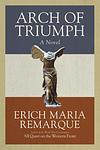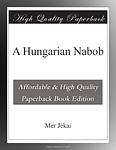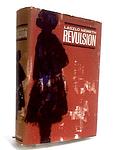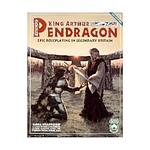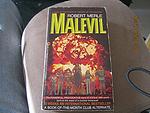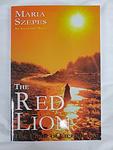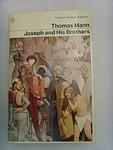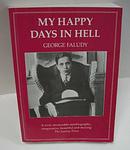Big Read (Hungarian)
This is one of the 284 lists we use to generate our main The Greatest Books list.
-
Eclipse of the Crescent Moon by Géza Gárdonyi
"Eclipse of the Crescent Moon" is a historical novel set in the 16th century, during the time of the Ottoman Empire's siege on the Hungarian fortress of Eger. The story follows a brave young boy named Gergely, who grows up to be a heroic soldier defending his homeland. The tale is filled with romance, adventure, and provides a detailed depiction of medieval life, warfare, and the heroic resistance of the Hungarian people against the invading Ottoman forces.
-
The Paul Street Boys by Ferenc Molnár
The book is a classic coming-of-age tale set in Budapest, Hungary, at the turn of the 20th century. It follows a group of adolescent boys who are engaged in a territorial battle over a vacant lot they call the "grund," which they use as their playground. The story highlights themes of loyalty, camaraderie, and the struggles of youth as the boys defend their cherished space against a rival group. The narrative focuses on the experiences of the protagonist, who is faced with difficult moral choices and the harsh realities of growing up, as the boys' conflict mirrors the larger social and economic tensions of their time.
-
Abigél by Szabó, Magda
Set against the backdrop of World War II in Hungary, the novel follows a young girl sent to a strict boarding school in the countryside by her father, a high-ranking general who fears for her safety amidst the war. Struggling to fit in and feeling abandoned, she eventually discovers the school harbors deep secrets, including the mysterious "Abigél," a statue that seems to be at the center of a clandestine operation protecting those persecuted by the war. As the protagonist navigates the complexities of adolescence, authority, and the harsh realities of her time, she learns valuable lessons about trust, loyalty, and the power of community in the face of adversity.
-
Nineteen Eighty Four by George Orwell
Set in a dystopian future, the novel presents a society under the total control of a totalitarian regime, led by the omnipresent Big Brother. The protagonist, a low-ranking member of 'the Party', begins to question the regime and falls in love with a woman, an act of rebellion in a world where independent thought, dissent, and love are prohibited. The novel explores themes of surveillance, censorship, and the manipulation of truth.
-
The Man With The Golden Touch by Mór Jókai
The novel revolves around the life of a man who, after a series of fortunate events, discovers a secret method to turn lead into gold, leading to immense wealth and the title of 'The Man with the Golden Touch'. However, his newfound riches bring him more misery than happiness, as he grapples with the corrupting influence of money, the envy and greed of those around him, and the realization that true value lies not in material wealth but in love and human relationships. His journey is a cautionary tale about the moral and emotional consequences of unchecked avarice and the pursuit of wealth at the expense of more meaningful aspects of life.
-
Winnie the Pooh by A. A Milne
This classic children's tale follows the charming adventures of a lovable, honey-loving bear named Winnie the Pooh and his friends in the Hundred Acre Wood. With his companions, including the timid Piglet, the gloomy Eeyore, the energetic Tigger, and the wise Owl, Pooh navigates through various situations and dilemmas, often with humorous and heartwarming results. The book is a celebration of friendship, imagination, and the simple joys of life.
-
The Little Prince by Antoine de Saint-Exupéry
A young prince from a tiny asteroid embarks on a journey across the universe, visiting various planets and meeting their strange inhabitants. Along the way, he learns about the follies and absurdities of the adult world, the nature of friendship, and the importance of retaining a childlike wonder and curiosity. His journey eventually leads him to Earth, where he befriends a fox and learns about love and loss before finally returning to his asteroid.
-
The Lord of the Rings by J. R. R. Tolkien
This epic high-fantasy novel centers around a modest hobbit who is entrusted with the task of destroying a powerful ring that could enable the dark lord to conquer the world. Accompanied by a diverse group of companions, the hobbit embarks on a perilous journey across Middle-earth, battling evil forces and facing numerous challenges. The narrative, rich in mythology and complex themes of good versus evil, friendship, and heroism, has had a profound influence on the fantasy genre.
-
Harry Potter And The Philosopher's Stone by J. K Rowling
The story follows a young boy, Harry Potter, who learns on his 11th birthday that he is the orphaned son of two powerful wizards and possesses unique magical powers of his own. He is summoned from his life as an unwanted child to become a student at Hogwarts, an English boarding school for wizards. There, he meets several friends who become his closest allies and help him discover the truth about his parents' mysterious deaths, the dark wizard who wants to kill him, and the magical stone that holds immense power.
-
The Master and Margarita by Mikhail Bulgakov
This novel is a complex narrative that weaves together three distinct yet intertwined stories. The first story is set in 1930s Moscow and follows the devil and his entourage as they wreak havoc on the city's literary elite. The second story is a historical narrative about Pontius Pilate and his role in the crucifixion of Jesus Christ. The third story is a love story between the titular Master, a writer who has been driven to madness by the criticism of his work, and his devoted lover, Margarita. The novel is a satirical critique of Soviet society, particularly the literary establishment, and its treatment of artists. It also explores themes of love, sacrifice, and the nature of good and evil.
-
Tüskevár by István Fekete
The novel is a coming-of-age story that follows two city boys who spend their summer in the Hungarian countryside, near a place called Tüskevár, to learn about nature, survival, and self-reliance. Under the guidance of an old woodsman, they encounter various adventures and challenges, from learning to fish and hunt to dealing with the harsh realities of the natural world. Throughout their stay, they gain a deep appreciation for the environment and experience personal growth, ultimately leaving behind their naïve views and becoming more mature and responsible individuals.
-
One Hundred Years of Solitude by Gabriel Garcia Marquez
This novel is a multi-generational saga that focuses on the Buendía family, who founded the fictional town of Macondo. It explores themes of love, loss, family, and the cyclical nature of history. The story is filled with magical realism, blending the supernatural with the ordinary, as it chronicles the family's experiences, including civil war, marriages, births, and deaths. The book is renowned for its narrative style and its exploration of solitude, fate, and the inevitability of repetition in history.
-
Abel Alone by Áron Tamási
"Abel Alone" is a poignant narrative that follows the life of a young shepherd named Abel, who lives in the isolated, pastoral landscapes of Transylvania. The story delves into Abel's solitary existence, his deep connection with nature, and his struggles with the complexities of human relationships and societal expectations. As he grapples with personal growth and the challenges of adulthood, Abel's journey is a testament to the resilience of the human spirit and the search for identity and belonging in a world that often feels vast and indifferent.
-
The Baron's Sons by Mór Jókai
"The Baron's Sons" is a historical novel set in the backdrop of the Hungarian Revolution of 1848, which follows the diverging paths and ideologies of three aristocratic brothers. As the nation struggles for independence from Habsburg rule, the brothers find themselves torn between loyalty to their noble heritage and the revolutionary cause. Their personal conflicts and romances intertwine with the larger political turmoil, painting a vivid picture of a family caught in the crossfire of rebellion, loyalty, and national identity. The novel explores themes of honor, betrayal, and the complexities of patriotism during a pivotal moment in Hungarian history.
-
Indul A Bakterház by Sándor Rideg
"Indul A Bakterház" is a Hungarian novel that follows the life of a young boy growing up in a rural village during the interwar period. The narrative centers around the boy's experiences in a strict, yet comical, educational system and his interactions with a cast of eccentric characters, including his family members and schoolmates. Through a series of humorous and poignant episodes, the novel paints a vivid picture of village life, exploring themes of adolescence, tradition, and the universal journey of growing up amidst the challenges of poverty and societal change.
-
Harry Potter And The Prisoner Of Azkaban by J. K Rowling
In this third installment of the popular fantasy series, the protagonist enters his third year at a magical school, only to find out that a notorious prisoner has escaped from a supposedly inescapable prison and is believed to be after him. As the school year progresses, he learns more about his parents' history, uncovers secrets about his professor, and discovers a magical map. He also learns to summon a powerful defensive spell, confronts the escaped prisoner, and uncovers the truth about his parents' betrayal and death. The book ends with him saving an innocent life and learning a valuable lesson about the complexity of human nature and the importance of true friendship.
-
Harry Potter And The Chamber Of Secrets by J. K Rowling
In this second installment of a magical series, a young wizard returns to his school of witchcraft and wizardry for his second year, only to find that a mysterious entity is petrifying his classmates. With the help of his friends, he uncovers the dark history of the school, including a secret chamber hidden within the castle. Inside this chamber lurks a creature controlled by a memory from the past, and the young wizard must face it to save his school.
-
Be Faithful Unto Death by Zsigmond Móricz
The novel is a poignant coming-of-age story set in a Hungarian boarding school at the turn of the 20th century. It follows the life of a young boy from a poor family who earns a scholarship to attend the prestigious institution. His journey is marked by the struggle to fit in among wealthier peers, the harsh discipline of school authorities, and the challenges of adolescence. When a valuable violin goes missing, he is unjustly accused of theft, leading to a profound examination of morality, integrity, and the resilience of the human spirit in the face of injustice and hardship.
-
Vuk: The Little Fox by István Fekete
The book is a captivating tale of a young fox named Vuk who, after the tragic loss of his family, embarks on a journey of survival and discovery in the wild. Under the guidance of his wise uncle Karak, Vuk learns the ways of the forest, hones his hunting skills, and navigates the perils of the natural world. As he grows, he encounters various challenges and adventures, including confrontations with hunters and other animals. The story is a poignant exploration of the circle of life, the importance of family and mentorship, and the coming-of-age of a clever and resilient protagonist.
-
The Old Man and the Sea by Ernest Hemingway
An aging Cuban fisherman struggles with a giant marlin far out in the Gulf Stream, isolated from the world and from human help. For days, he fights the marlin alone, admiring its strength, dignity, and faithfulness to its identity—its destiny is as true as his as a fisherman. He finally kills the marlin, but sharks attack and devour it before he can return to the shore. The fisherman returns home empty-handed but remains undefeated, having proven his abilities to himself.
-
Lottie And Lisa by Erich Kästner
The book tells the charming story of identical twin sisters separated at birth who meet unexpectedly at a summer camp. Initially unaware of their relationship, the girls take an instant dislike to each other due to their identical appearances, but as they get to know one another, they discover their shared parentage. They decide to switch places, with each going to live with the parent the other has grown up with, in an attempt to reunite their estranged family. Through a series of heartwarming and humorous events, the twins work together to bring their mother and father back together, exploring themes of family, identity, and the bond between siblings.
-
Gone With the Wind by Margaret Mitchell
Set against the backdrop of the American Civil War and Reconstruction era, this novel follows the life of a young Southern belle, who is known for her beauty and charm. Her life takes a turn when she is forced to make drastic changes to survive the war and its aftermath. The story revolves around her struggle to maintain her family's plantation and her complicated love life, especially her unrequited love for a married man, and her tumultuous relationship with a roguish blockade runner.
-
Les Misérables by Victor Hugo
Set in early 19th-century France, the narrative follows the lives and interactions of several characters, particularly the struggles of ex-convict Jean Valjean and his journey towards redemption. The story touches upon the nature of law and grace, and elaborates upon the history of France, architecture of Paris, politics, moral philosophy, antimonarchism, justice, religion, and the types and nature of romantic and familial love. It is known for its vivid and relatable characters, and its exploration of societal and moral issues.
-
The Count of Monte Cristo by Alexandre Dumas
A young sailor, unjustly accused of treason, is imprisoned without trial in a grim fortress. After a daring escape, he uncovers a hidden treasure and transforms himself into the mysterious and wealthy Count of Monte Cristo. He then sets out to exact revenge on those who wronged him, using his newfound power and influence. Throughout his journey, he grapples with questions about justice, vengeance, and whether ultimate power can ultimately corrupt.
-
A Funtineli Boszorkány by Albert Wass
The novel is a sweeping historical saga set in Transylvania, focusing on the life of a young peasant girl who, despite her humble origins and the tumultuous times, rises to become a powerful figure in her community. Possessing an indomitable spirit and a mysterious gift that some consider witchcraft, she navigates the complex social hierarchies and political upheavals of her era, becoming both revered and feared. Her journey is marked by love, loss, and the relentless pursuit of her destiny, as she becomes entwined with the fates of the villagers and the land itself, reflecting the broader struggles and resilience of the human spirit.
-
Harry Potter and the Order of the Phoenix by J. K Rowling
In the fifth installment of this iconic series, the young wizard Harry Potter returns for his fifth year at Hogwarts School of Witchcraft and Wizardry, only to discover that much of the wizarding world, including the Ministry of Magic, is in denial about the teenager's recent encounter with the evil Lord Voldemort. Harry is also beset by disturbing dreams while the sinister prison guards of Azkaban have been stationed at Hogwarts to protect the school, and Harry's budding abilities as a wizard are put to the test. Meanwhile, a secret society, the Order of the Phoenix, is working to fight Voldemort and his followers, and Harry's role in the coming conflict is becoming ever more significant.
-
Fateless by Imre Kertész
"Fateless" is a harrowing account of a Hungarian Jewish boy's experiences in Nazi concentration camps during World War II. The protagonist is sent to Auschwitz, then Buchenwald, and finally to a factory in Zeitz, enduring brutal conditions and witnessing unimaginable horrors. Despite his experiences, he maintains a detached, almost indifferent perspective, focusing on the mundane aspects of life in the camps, which further highlights the absurdity and horror of the situation. The novel explores themes of identity, survival, and the arbitrary nature of fate.
-
The Three Musketeers by Alexandre Dumas
Set in 17th century France, the novel follows the adventures of a young man who leaves home to join the Musketeers of the Guard. He befriends three of the most daring musketeers, Athos, Porthos, and Aramis, and together, they navigate political intrigue, love affairs, and duels. Their main enemies are the powerful Cardinal Richelieu and the beautiful but treacherous Milady, who will stop at nothing to bring them down.
-
Kincskereső Kisködmön by Ferenc Móra
"Kincskereső Kisködmön" is a classic Hungarian children's tale that follows the adventures of a young, clever boy from a poor family who sets out on a quest to find a hidden treasure. Along his journey, he encounters various characters and obstacles, using his wit and resourcefulness to solve riddles and overcome challenges. The story is a celebration of ingenuity and perseverance, as the protagonist demonstrates that with courage and cleverness, even someone from humble beginnings can achieve great things. The book is not only a treasure hunt but also a moral tale that imparts valuable lessons to its young readers.
-
Quo Vadis by Henryk Sienkiewicz
Set in ancient Rome during the reign of Emperor Nero, "Quo Vadis" follows the love story of a young Christian woman Lygia and a Roman patrician, Marcus Vinicius. As their relationship blossoms, they must navigate the dangerous political climate of the time, marked by Nero's tyranny and the growing influence of Christianity. The novel provides a vivid depiction of the clash between pagan Rome and the early Christian church, culminating in the Great Fire of Rome and subsequent persecution of Christians.
-
Give Me Back My Mountains by Albert Wass
"Give Me Back My Mountains" is a poignant historical novel that delves into the struggles and resilience of a Transylvanian noble family during the tumultuous period of World War II and the subsequent communist takeover. The narrative explores themes of loss, identity, and the unyielding human spirit, as the family confronts the confiscation of their ancestral lands and the erosion of their cultural heritage. Through vivid characters and rich descriptions, the book paints a picture of a bygone era, highlighting the personal and collective challenges faced by those who lived through the seismic political shifts of the 20th century in Eastern Europe.
-
Embers by Sandor Marai
"Embers" is a novel about two old friends who reunite after being apart for 41 years. The story takes place in a secluded castle in the Carpathian Mountains, where the two men confront each other about a long-kept secret that has kept them apart. The narrative delves into themes of friendship, love, loyalty, and betrayal, while exploring the intricate dynamics of human relationships. The novel is a poignant examination of the nature of time and memory, and the ways in which they can shape and define our lives.
-
Árvácska by Zsigmond Móricz
The book is a poignant tale of a young orphan girl navigating the hardships of life in early 20th-century Hungary. Thrust into a world of poverty and struggle, she is passed from one exploitative guardian to another, each more neglectful and abusive than the last. Despite the relentless adversity and the loss of her innocence, the protagonist's resilience and spirit shine through as she endures the cruelties of her existence, searching for a place to call home and a family to love her. The narrative serves as a powerful social commentary on the plight of the vulnerable in a society indifferent to their suffering.
-
Crime and Punishment by Fyodor Dostoevsky
A young, impoverished former student in Saint Petersburg, Russia, formulates a plan to kill an unscrupulous pawnbroker to redistribute her wealth among the needy. However, after carrying out the act, he is consumed by guilt and paranoia, leading to a psychological battle within himself. As he grapples with his actions, he also navigates complex relationships with a variety of characters, including a virtuous prostitute, his sister, and a relentless detective. The narrative explores themes of morality, redemption, and the psychological impacts of crime.
-
St. Peter's Umbrella by Kálmán Mikszáth
The novel revolves around a quaint Hungarian village where an intricately carved umbrella, believed to have once belonged to Saint Peter, becomes the center of a series of humorous and heartwarming events. When the protagonist, a young curate, inherits the umbrella, it sets off a chain of misunderstandings and romantic entanglements. The story delves into the lives of the village's colorful inhabitants, exploring themes of love, faith, and the search for happiness, all while the umbrella symbolizes the intersection of the divine and the mundane in the daily lives of the villagers.
-
Jane Eyre by Charlotte Bronte
The novel follows the life of Jane Eyre, an orphan who is mistreated by her relatives and sent to a charity school. As she grows up, Jane becomes a governess at Thornfield Hall, where she falls in love with the brooding and mysterious Mr. Rochester. However, she soon learns of a dark secret in his past that threatens their future together. The story is a profound exploration of a woman's self-discovery and her struggle for independence and love in a rigid Victorian society.
-
Dirty Fred The Captain by Jenő Rejtő
The book is a humorous adventure set in the 1930s, following the misadventures of Dirty Fred, a lovably roguish sea captain, and his sidekick, a former Foreign Legionnaire. Together, they navigate through a series of comical escapades involving treasure hunts, mistaken identities, and run-ins with a colorful cast of characters, including criminals, spies, and femme fatales. The story is known for its witty dialogue, satirical take on classic adventure tropes, and the endearing camaraderie between the two main characters as they try to outsmart their adversaries and survive the perils of their swashbuckling lifestyle.
-
Slave Of The Huns by Géza Gárdonyi
"Slave of the Huns" is a historical novel that transports readers to the tumultuous era of Attila the Hun's reign, seen through the eyes of a Greek captive. The protagonist, a young man of noble birth, is taken as a slave and must navigate the perilous world of the Hunnic Empire, where brutality and barbarism reign supreme. His journey is one of survival, resilience, and adaptation as he witnesses the fearsome power of the Huns, experiences the complexities of their society, and encounters love amidst the chaos of war. The novel blends adventure, romance, and a richly detailed historical backdrop to explore themes of freedom, cultural clash, and the indomitable human spirit.
-
Wuthering Heights by Emily Brontë
This classic novel is a tale of love, revenge and social class set in the Yorkshire moors. It revolves around the intense, complex relationship between Catherine Earnshaw and Heathcliff, an orphan adopted by Catherine's father. Despite their deep affection for each other, Catherine marries Edgar Linton, a wealthy neighbor, leading Heathcliff to seek revenge on the two families. The story unfolds over two generations, reflecting the consequences of their choices and the destructive power of obsessive love.
-
A Nap Szerelmese by Sándor Dallos
"A Nap Szerelmese" is a historical novel that delves into the life and times of a Hungarian solar physicist. Set against the backdrop of the tumultuous first half of the 20th century, the book follows the protagonist's passionate pursuit of scientific discovery, his love for the sun, and his personal struggles amidst the political upheavals of the era. As he navigates the challenges of his research and the complexities of his private life, the narrative weaves a rich tapestry of intellectual fervor, emotional depth, and the relentless quest for knowledge in an ever-changing world.
-
The Red and the Black by Stendhal
The novel is a detailed psychological portrait of Julien Sorel, a young man from a provincial background who aspires to rise above his humble beginnings. He uses his intelligence and hypocrisy to advance in the post-Napoleonic French society, which is deeply divided by class and political loyalties. The story is a critique of the society's materialism and hypocrisy as Julien's ambitions lead him to a tragic end. The title refers to the contrasting uniforms of the army and the church, the two routes available to him for upward mobility.
-
The Catcher in the Rye by J. D. Salinger
The novel follows the story of a teenager named Holden Caulfield, who has just been expelled from his prep school. The narrative unfolds over the course of three days, during which Holden experiences various forms of alienation and his mental state continues to unravel. He criticizes the adult world as "phony" and struggles with his own transition into adulthood. The book is a profound exploration of teenage rebellion, alienation, and the loss of innocence.
-
Édes Anna by Dezső Kosztolányi
"Édes Anna" is a novel that revolves around the life of a young servant girl, Anna, who works for a bourgeois family in early 20th century Hungary. The narrative explores Anna's experiences of exploitation, abuse, and societal oppression. As she navigates her way through life, her innocence and naivety are gradually eroded, leading her to commit an act of violent rebellion. The book is a potent critique of class and gender inequalities of the time.
-
Catch-22 by Joseph Heller
The book is a satirical critique of military bureaucracy and the illogical nature of war, set during World War II. The story follows a U.S. Army Air Forces B-25 bombardier stationed in Italy, who is trying to maintain his sanity while fulfilling his service requirements so that he can go home. The novel explores the absurdity of war and military life through the experiences of the protagonist, who discovers that a bureaucratic rule, the "Catch-22", makes it impossible for him to escape his dangerous situation. The more he tries to avoid his military assignments, the deeper he gets sucked into the irrational world of military rule.
-
Thistle by István Fekete
"Thistle" is a heartwarming tale of a young golden eagle navigating the trials and tribulations of the natural world. Set against the backdrop of the majestic Hungarian landscape, the story follows the protagonist from its time as an eaglet in the nest through its journey to adulthood. The narrative delves into the challenges faced by the eagle, including the search for food, the threat of predators, and the struggle for survival in the changing seasons. Along the way, the eagle encounters a host of other animals, each with their own stories, contributing to a rich tapestry of wildlife and the intricate balance of nature. The book is a celebration of resilience, independence, and the beauty of the wild, offering readers a glimpse into the life of one of nature's most impressive birds of prey.
-
Lord of the Flies by William Golding
A group of British boys are stranded on an uninhabited island after their plane crashes during wartime. Initially, they attempt to establish order, creating rules and electing a leader. However, as time passes, their civility erodes, and they descend into savagery and chaos. The struggle for power intensifies, leading to violence and death. The novel explores themes of innocence, the inherent evil in mankind, and the thin veneer of civilization.
-
The 14 Carat Roadster by Jenő Rejtő
In this comedic adventure novel, a down-on-his-luck journalist finds himself entangled in a series of misadventures when he comes into possession of a luxurious but cursed car. The vehicle, which seems to bring trouble to all who own it, propels the protagonist through a whirlwind of escapades involving eccentric millionaires, unscrupulous thieves, and a mysterious woman. Set against the backdrop of pre-World War II Europe, the story combines humor, action, and a touch of romance, as the protagonist navigates the dangerous and often absurd situations that arise from his association with the ill-fated roadster.
-
Aranyecset by Sándor Dallos
"Aranyecset" is a historical novel that delves into the life and times of a gifted young painter during the Renaissance era. Set against the backdrop of 16th-century Europe, the narrative follows the artist's journey from his humble beginnings to becoming a renowned master. The protagonist navigates the complexities of art, politics, and society, as he seeks to perfect his craft and leave an indelible mark on the world. Along the way, he encounters a rich tapestry of characters, from patrons and fellow artists to influential figures of the period, all of which shape his personal and artistic development. The novel is a celebration of creativity and the enduring power of art, as well as an exploration of the historical context that both inspires and challenges the artist.
-
Lassie Come Home by Eric Knight
This classic tale follows the heartwarming journey of a loyal collie who, after being sold to a distant owner due to her family's financial struggles, embarks on an arduous trek across Scotland to reunite with her young master. Despite facing numerous obstacles, including natural dangers and human cruelty, the determined dog's unwavering devotion and instinct guide her through the treacherous terrain. Her incredible loyalty and the deep bond between pet and owner underscore the story's enduring message about the power of love and perseverance.
-
Winnetou by Karl May
The book is a tale of the American Wild West, where the protagonist, a German immigrant and greenhorn, embarks on a life-changing adventure. He forms an unlikely friendship with a noble Native American chief, Winnetou, and together they navigate the perils of the frontier. Their bond transcends cultural barriers and they fight side by side against various enemies, including unscrupulous treasure hunters and hostile tribes. Through their adventures, the protagonist matures into a skilled frontiersman, embodying the ideals of courage, honor, and respect for the natural world and its indigenous peoples.
-
Téli Berek by István Fekete
"Téli Berek" is a heartwarming tale set in the Hungarian countryside, following the life of a young boy and his deep connection with nature. As the winter season unfolds, the boy, along with his faithful dog, embarks on a series of adventures and encounters with the local wildlife. The narrative beautifully captures the serene and sometimes harsh realities of rural life, emphasizing the rhythms of the natural world and the boy's growing understanding and respect for the environment around him. Through vivid descriptions and a gentle storytelling style, the book paints a picture of a bygone era, where the bond between humans and nature is central to existence.
-
War and Peace by Leo Tolstoy
Set in the backdrop of the Napoleonic era, the novel presents a panorama of Russian society and its descent into the chaos of war. It follows the interconnected lives of five aristocratic families, their struggles, romances, and personal journeys through the tumultuous period of history. The narrative explores themes of love, war, and the meaning of life, as it weaves together historical events with the personal stories of its characters.
-
For Whom the Bell Tolls by Ernest Hemingway
Set in the backdrop of the Spanish Civil War, the novel follows the story of an American dynamiter, who is assigned the task of blowing up a bridge during a crucial attack on the city of Segovia. Alongside the war narrative, the story also explores his relationships with various characters, including his love affair with a young Spanish woman. The narrative beautifully encapsulates themes of love, war, death, and the transient nature of life.
-
Pride and Prejudice by Jane Austen
Set in early 19th-century England, this classic novel revolves around the lives of the Bennet family, particularly the five unmarried daughters. The narrative explores themes of manners, upbringing, morality, education, and marriage within the society of the landed gentry. It follows the romantic entanglements of Elizabeth Bennet, the second eldest daughter, who is intelligent, lively, and quick-witted, and her tumultuous relationship with the proud, wealthy, and seemingly aloof Mr. Darcy. Their story unfolds as they navigate societal expectations, personal misunderstandings, and their own pride and prejudice.
-
The Gold Coffin by Ferenc Móra
"The Gold Coffin" is a historical novel that transports readers to ancient Egypt, where a young scribe named Tuthmes navigates the complexities of life and power in the Pharaoh's court. After discovering a golden coffin that is said to hold great secrets and power, Tuthmes becomes embroiled in a dangerous web of political intrigue and betrayal. As he seeks to uncover the truth behind the coffin and its mystical properties, he must also contend with his own personal ambitions and the moral dilemmas that arise from his quest for knowledge and influence. Set against the richly detailed backdrop of Egyptian culture and mythology, the novel explores themes of ambition, loyalty, and the enduring human fascination with immortality.
-
A Fekete Város by Kálmán Mikszáth
Set in the 19th century Austro-Hungarian Empire, the novel revolves around a young, idealistic engineer who is sent to a small, neglected mining town to oversee the construction of a new project. Upon arrival, he encounters a community steeped in corruption, with a colorful cast of characters who are resistant to change and progress. As he navigates the complexities of local politics and social dynamics, he becomes entangled in the town's dark secrets and the lives of its inhabitants, challenging his principles and ambitions. The story is a blend of satire and social commentary, reflecting on the nature of bureaucracy, the clash between modernity and tradition, and the human condition.
-
The Princess Diaries by Meg Cabot
The book follows the life of a teenage girl who discovers that she is the heir to the throne of a small European principality. Navigating the complexities of high school, she must also learn the intricacies of royalty and diplomacy. With the help of her grandmother, the reigning queen, she undergoes a transformation from an awkward adolescent to a confident young woman, all while dealing with the pressures of her newfound status, the media's attention, and the challenges of her personal relationships. Her journey is filled with humor, self-discovery, and the trials and tribulations of growing up.
-
Tóték by István Örkény
"Tóték" is a satirical novella set during World War II in a Hungarian village occupied by Soviet troops. The story revolves around the Tót family, who are forced to accommodate a Russian artillery captain in their home. As the family goes to absurd lengths to please their unwanted guest, the novella humorously and critically explores themes of power, oppression, and the absurdity of war. The interactions between the Hungarian family and the Russian officer highlight the cultural misunderstandings and the tragicomic aspects of life under military occupation, offering a poignant reflection on the human condition during times of conflict.
-
Flowers for Algernon by Daniel Keyes
The book is a poignant science fiction narrative that follows the life of Charlie Gordon, a man with an IQ of 68, who undergoes an experimental surgical procedure intended to increase his intelligence. The story is told through Charlie's progress reports, which initially showcase his limited comprehension and writing ability. As the treatment takes effect, Charlie's intelligence surpasses that of the average person, leading to a dramatic increase in his understanding of the world, relationships, and his own past. However, the transformation is not without its pitfalls, as Charlie grapples with the emotional and social implications of his newfound abilities, and the impermanence of the experiment's success becomes a haunting reality. The novel explores themes of intellect, human dignity, and the ethics of scientific experimentation.
-
állítsátok Meg Terézanyut! by Zsuzsa Rácz
"Állítsátok meg Terézanyut!" is a comedic novel that delves into the complexities of family life through the lens of Hungarian culture. The story centers around a middle-aged woman whose children have grown up and are leading their own lives, leaving her to navigate the challenges of an empty nest. As she attempts to maintain control over her family and their affairs, her overbearing nature leads to a series of humorous and heartwarming misadventures. The novel explores themes of motherhood, independence, and the evolving dynamics of familial relationships, all while offering a satirical look at the generational gaps and societal expectations within a modern family setting.
-
The Name of the Rose by Umberto Eco
Set in a wealthy Italian monastery in the 14th century, the novel follows a Franciscan friar and his young apprentice as they investigate a series of mysterious deaths within the monastery. As they navigate the labyrinthine library and decipher cryptic manuscripts, they uncover a complex plot involving forbidden books, secret societies, and the Inquisition. The novel is a blend of historical fiction, mystery, and philosophical exploration, delving into themes of truth, knowledge, and the power of the written word.
-
Robinson Crusoe by Daniel Defoe
The book is a classic adventure novel about a man who spends 28 years on a remote tropical island near Trinidad, encountering cannibals, captives, and mutineers before being rescued. The story is noted for its realistic portrayal of the protagonist's physical and psychological development and for its detailed depiction of his attempts to create a life for himself in the wilderness. The novel has been interpreted as an allegory for the development of civilization, as well as a critique of European colonialism.
-
Death Is My Trade by Robert Merle
The book is a fictionalized account of the life of Rudolf Höss, the commandant of Auschwitz concentration camp during World War II. It delves into the protagonist's personal history, tracing his journey from a troubled childhood through his rise in the ranks of the SS. The narrative provides a chilling insight into the bureaucratic and ideological mechanisms that led to the Holocaust, exploring the protagonist's role in the administration of mass murder and the psychological detachment that enabled him to view the extermination of millions as a job. The story is a harrowing examination of the banality of evil and the moral complexities of obedience to authority.
-
The Da Vinci Code by Dan Brown
This thriller novel follows symbologist Robert Langdon and cryptographer Sophie Neveu as they investigate a murder in the Louvre Museum in Paris. The murder leads them to a trail of clues hidden in the works of Leonardo da Vinci, revealing a religious mystery protected by a secret society for two thousand years. The mystery involves a conspiracy within the Catholic Church and threatens to overturn the foundations of Christianity.
-
East of Eden by John Steinbeck
This novel is a multi-generational epic that follows the lives of the Trask and Hamilton families in the Salinas Valley in California. The story is deeply rooted in biblical allegory, particularly the tale of Cain and Abel, as it explores themes of love, guilt, freedom, and the inherent good and evil in human nature. The narrative provides a profound, complex portrayal of family and individual struggles with morality and love, while also reflecting on the social changes affecting America during the late 19th and early 20th centuries.
-
The Good Soldier Svejk by Jaroslav Hašek
"The Good Soldier Svejk" is a satirical novel set during World War I, following the story of a Czech soldier in the Austro-Hungarian army. Svejk, the protagonist, is a simple-minded, good-natured man who is frequently arrested for bungling jobs due to his apparent idiocy. Despite his constant run-ins with authority, Svejk manages to maintain his cheerful disposition and even takes advantage of his perceived stupidity to manipulate the system. The book offers a humorous and critical perspective on the absurdity of war and the incompetence of military bureaucracy.
-
The Young Lions by Irwin Shaw
The novel is a sweeping World War II drama that follows the intersecting lives of three soldiers: a German ski instructor turned reluctant Nazi officer, an American Jewish infantryman, and an ambitious playwright serving in the U.S. Army. Their stories unfold across the battlefields of Europe and the home fronts, painting a vivid portrait of the war's impact on the individual psyche and the moral complexities faced by each man. As the narrative progresses, their paths converge in a powerful examination of courage, the horrors of war, and the quest for personal redemption amidst global conflict.
-
Kard és Kasza by Albert Wass
"Kard és Kasza" is a historical novel set in the tumultuous period of 16th-century Hungary, a time when the country is caught in the crossfire of the Ottoman Empire's expansion and the Habsburg's imperial ambitions. The narrative follows the life of a noble Hungarian family, focusing on their struggles, loyalty, and the defense of their homeland against the backdrop of war and political upheaval. The story delves into themes of honor, betrayal, and the complexities of feudal allegiances, painting a vivid picture of the era's social and military fabric through the lens of personal and nationalistic endeavors.
-
The Pillars Of The Earth by Ken Follett
Set in the 12th century, the novel is a sweeping epic of good and evil, treachery and intrigue, violence and beauty. It revolves around the construction of a cathedral in the fictional town of Kingsbridge, England. The story is centered on the lives of three main characters: a master builder, a monk, and a noblewoman, whose destinies are intertwined with the building of the cathedral and the tumultuous events of the time, including war, religious strife, and power struggles.
-
Arch Of Triumph by Erich Maria Remarque
Set against the backdrop of the looming Second World War in Paris, the narrative follows a German refugee and surgeon who is living without proper documents after escaping from Nazi Germany. Haunted by his past and the horrors he has witnessed, he navigates the dark streets of Paris, performing surgeries in a clandestine practice for other displaced immigrants. Amidst his struggle for survival and identity, he engages in a passionate but tumultuous love affair with an Italian woman, which brings temporary solace but ultimately leads to greater despair. The story is a poignant exploration of exile, loss, and the human desire for connection and meaning in the face of relentless adversity.
-
School At The Frontier by Géza Ottlik
"School at the Frontier" is a novel set in a military academy in Hungary during the interwar period, where a group of boys navigates the complexities of adolescence against the backdrop of a strict and often oppressive educational system. The narrative delves into the intricate relationships, hierarchies, and unspoken codes that govern the lives of the students, as they form alliances, confront authority, and grapple with the looming shadow of the outside world's political turmoil. Through the lens of the protagonist's experiences, the story explores themes of loyalty, friendship, and the loss of innocence, painting a poignant picture of youth and the formative experiences that shape one's identity.
-
A Hungarian Nabob by Mór Jókai
The novel revolves around the life of a wealthy Hungarian nobleman in the 19th century, who is known for his extravagant lifestyle and generous nature. Despite his opulence, he faces a series of personal and political challenges, including family betrayal and the complex socio-political landscape of the Austro-Hungarian Empire. As he navigates through these trials, the story delves into themes of loyalty, national identity, and the shifting tides of fortune, all set against the backdrop of a Hungary grappling with modernization and the pressures of external empires. The narrative combines elements of romance, adventure, and satire to explore the human condition and the nature of nobility.
-
This Above All by Eric Knight
"This Above All" is a poignant novel set during World War II, which follows the story of Clive Briggs, a disillusioned British soldier who deserts the army, driven by his conscience and a deep sense of pacifism. He meets and falls in love with Prudence Cathaway, a woman from an upper-class family who has joined the Women's Auxiliary Air Force out of a sense of duty. Their love affair is marked by intense discussions about class, war, and morality, as they navigate their personal convictions and the pressures of a society engulfed in conflict. The novel explores themes of personal integrity, the clash between individual beliefs and societal expectations, and the impact of war on human relationships and values.
-
Revulsion by László Németh
"Revulsion" is a psychological novel that delves into the depths of human emotions and societal norms. The story revolves around a protagonist who returns to his native country after a long absence, only to find himself deeply disturbed by the moral decay and hypocrisy he observes in the people around him. As he grapples with his own feelings of disgust and alienation, the novel explores themes of identity, belonging, and the struggle to maintain personal integrity in the face of overwhelming social pressure. The narrative is a poignant critique of the human condition and the often-unseen forces that shape our lives and relationships.
-
A Farewell to Arms by Ernest Hemingway
Set during World War I, the novel follows an American ambulance driver in the Italian army and his love affair with a British nurse. The story is a first-person account of the protagonist's experiences in war and his struggle to survive amidst chaos and destruction. The narrative explores themes of love, war, and the fragility of life, culminating in a tragic ending that underscores the futile nature of war and the inevitable suffering it brings.
-
Anna Karenina by Leo Tolstoy
Set in 19th-century Russia, this novel revolves around the life of Anna Karenina, a high-society woman who, dissatisfied with her loveless marriage, embarks on a passionate affair with a charming officer named Count Vronsky. This scandalous affair leads to her social downfall, while parallel to this, the novel also explores the rural life and struggles of Levin, a landowner who seeks the meaning of life and true happiness. The book explores themes such as love, marriage, fidelity, societal norms, and the human quest for happiness.
-
A Journey Round My Skull by Frigyes Karinthy
"A Journey Round My Skull" is a deeply personal narrative that takes the reader through the author's own experiences with a brain tumor and the subsequent neurosurgery. Written with a blend of humor, introspection, and medical detail, the book explores the author's changing perceptions and emotions as he confronts his mortality and the intricacies of his own mind. It is a pioneering work in the genre of medical memoirs, offering a unique window into the psychological and physical journey of a patient in the early 20th century, as well as the evolving field of neurosurgery.
-
The Hitchhiker's Guide to the Galaxy by Douglas Adams
This comedic science fiction novel follows the intergalactic adventures of an unwitting human, Arthur Dent, who is rescued just before Earth's destruction by his friend Ford Prefect, a researcher for a galactic travel guide. Together, they hitch a ride on a stolen spaceship, encountering a range of bizarre characters, including a depressed robot and a two-headed ex-president of the galaxy. Through a series of satirical and absurd escapades, the book explores themes of existentialism, bureaucracy, and the absurdity of life, all while poking fun at the science fiction genre and offering witty commentary on the human condition.
-
Love in the Time of Cholera by Gabriel Garcia Marquez
This novel follows the story of Florentino Ariza and Fermina Daza, who fall passionately in love in their youth. However, Fermina eventually marries a wealthy doctor, leaving Florentino heartbroken. Despite this, Florentino remains devoted to Fermina for over fifty years, patiently waiting for her husband's death to have another chance at her love. The story is set against the backdrop of a cholera epidemic, serving as a metaphor for the transformative power of love and the destructive power of obsession.
-
The Book Of Fathers by Miklós Vámos
"The Book of Fathers" chronicles the lives of twelve generations of men from a Hungarian family, spanning over 300 years from the 18th century to the modern day. Each chapter focuses on one descendant, capturing the historical and personal challenges they face, from the rise and fall of empires to the intimate struggles of love and loss. The novel weaves a tapestry of Hungarian history and the family's legacy, marked by a mystical diary that is passed down from father to son, which possesses the power to influence the fate of its keeper. Through the generations, the book becomes a symbol of the family's heritage and the enduring connection between the past and the future.
-
The Pendragon Legend by Antal Szerb
In "The Pendragon Legend," a young academic from London is drawn into a world of esoteric mysteries and occult practices when he visits a friend's ancient Welsh estate. The narrative weaves together elements of gothic horror, romantic adventure, and comedic intrigue as the protagonist encounters a colorful cast of characters, including a beautiful cousin, a secretive uncle, and a charismatic count. As he delves deeper into the family's history and the local legends of the Pendragons, he finds himself entangled in a plot involving alchemy, ancestral curses, and a secret society, leading to a series of thrilling and supernatural events that challenge his rational worldview.
-
Bezzeg Az én Időmben by Klára Fehér
"Bezzeg Az én Időmben" is a reflective work that delves into the generational differences and societal changes in Hungary, offering a nostalgic look at the past through the lens of personal anecdotes and cultural observations. The book contrasts contemporary life with the experiences of previous generations, exploring themes of family, education, and social norms. It serves as a commentary on the evolution of Hungarian society, inviting readers to consider the implications of progress and the value of tradition in a rapidly changing world.
-
Gergő és Az álomfogók by Gyula Böszörményi
In this enchanting tale, a young boy named Gergő discovers a mysterious world of dream catchers who are responsible for protecting dreams from the nightmares that seek to disrupt them. As Gergő embarks on a thrilling adventure, he learns about the delicate balance between the dream world and reality, and the importance of confronting one's fears. With the help of new friends and his own courage, Gergő must navigate through this fantastical realm to ensure that the harmony of dreams is preserved for himself and others. Along the way, he gains insights into bravery, friendship, and the power of imagination.
-
Malevil by Robert Merle
Set in the aftermath of a devastating nuclear war, the novel follows a group of survivors who find refuge in a medieval castle named Malevil. The survivors, led by the protagonist, must navigate the challenges of rebuilding their lives in a drastically altered world. They grapple with issues of survival, community, morality, and leadership as they encounter other groups of survivors with different philosophies and intentions. The story is a gripping exploration of human resilience, the will to maintain civilization, and the complexities of interpersonal relationships in a post-apocalyptic setting.
-
The Alchemist by Paulo Coelho
A young Andalusian shepherd named Santiago dreams of finding a worldly treasure and sets off on a journey across the Egyptian desert in search of it. Along the way, he encounters a series of characters who impart wisdom and help guide his spiritual journey. The novel explores themes of destiny, personal legend, and the interconnectedness of all things in the universe. The boy learns that true wealth comes not from material possessions, but from self-discovery and attaining one's "Personal Legend".
-
Für Elise by Szabó, Magda
The novel revolves around the life of a woman named Elise, who, after the death of her husband, discovers a series of letters that reveal hidden aspects of her marriage and her husband's past. As she delves into the contents of the letters, Elise is forced to confront the illusions and truths of her relationship, as well as her own identity. Set against the backdrop of a changing society, the story explores themes of love, betrayal, and the complex layers of human relationships, ultimately leading Elise on a poignant journey of self-discovery and redemption.
-
Journey by Moonlight by Antal Szerb
"Journey by Moonlight" tells the story of a newlywed Hungarian couple, Mihály and Erzsi, who honeymoon in Italy. Mihály, however, is haunted by his past and becomes increasingly obsessed with his adolescent years, his old friends, and a mysterious brother and sister. This results in him abandoning Erzsi in order to embark on a strange and dark journey of self-discovery. The novel explores themes of nostalgia, love, and the struggle between personal desires and societal expectations.
-
Jadviga Párnája by Pál Závada
"Jadviga Párnája" is a historical novel set in a Hungarian village at the turn of the 20th century. It delves into the life of a young woman named Jadviga, who is of Polish descent, and her marriage to a Hungarian man, András. The narrative unfolds through a series of letters, diary entries, and other documents, painting a vivid picture of rural life, social norms, and the personal struggles of the characters. The novel explores themes of love, fidelity, identity, and the complexities of human relationships against the backdrop of a society grappling with change and the influences of modernity.
-
Ida Regénye by Géza Gárdonyi
"Ida Regénye" is a historical novel set in 19th-century Hungary, focusing on the life of a young woman named Ida. The narrative follows Ida's journey from her sheltered upbringing through various trials and tribulations that reflect the social and political changes of the era. As she navigates love, loss, and the struggle for independence, Ida's character is shaped by her resilience and determination. The novel paints a vivid picture of Hungarian society, exploring themes of class, gender, and the quest for personal freedom against the backdrop of a nation in flux.
-
The Magic Mountain by Thomas Mann
In this novel, the protagonist, a young, ordinary man, visits his cousin at a tuberculosis sanatorium in the Swiss Alps. Intending to stay for only a few weeks, he ends up remaining there for seven years, becoming a patient himself. The book explores his experiences and relationships with other patients and staff, delving into philosophical discussions on life, time, and the nature of disease. It also provides a vivid portrayal of the European society and intellectual life on the eve of World War I.
-
Régimódi Történet by Szabó, Magda
"Régimódi Történet" is a poignant narrative set in early 20th-century Hungary, focusing on the life of a young girl from a noble family. As she grows up, she witnesses the decline of her family's fortunes and the changing social order following World War I. The novel explores themes of love, loss, and the passage of time, as well as the impact of historical events on individual lives. Through the protagonist's eyes, the reader experiences the challenges of adapting to a new era while clinging to the values and traditions of the past. The story is a rich tapestry of personal and historical transformation, illustrating the resilience of the human spirit in the face of adversity.
-
The Unbearable Lightness of Being by Milan Kundera
Set against the backdrop of the Prague Spring period of Czechoslovak history, the novel explores the philosophical concept of Nietzsche's eternal return through the intertwined lives of four characters: a womanizing surgeon, his intellectual wife, his naïve mistress, and her stoic lover. The narrative delves into their personal struggles with lightness and heaviness, freedom and fate, love and betrayal, and the complexities of human relationships, all while offering a profound meditation on the nature of existence and the paradoxes of life.
-
The Door by Szabó, Magda
"The Door" by Magda Szabo is a novel about the relationship between two women, one of whom is a writer and the other is her housekeeper. The story explores themes of class, power, and the complexities of human relationships. As the two women become increasingly intertwined, their relationship becomes more and more complicated, leading to unexpected consequences for both of them. The novel is a powerful exploration of the human condition, and a poignant reminder of the importance of understanding and empathy in our interactions with others.
-
The Confessions Of A Haut Bourgeois by Sándor Márai
"The Confessions of a Haut Bourgeois" is a memoir that delves into the life and reflections of a man born into the Hungarian upper middle class at the turn of the 20th century. The narrative explores the author's formative years, education, and experiences that shaped his worldview, set against the backdrop of a fading Austro-Hungarian Empire and the tumultuous changes sweeping through Europe. It is a poignant examination of the cultural and social mores of the time, as well as a personal reckoning with the loss of the author's own privileged world and the search for identity in a society undergoing profound transformation.
-
The Red Lion by Mária Szepes
"The Red Lion" is a sweeping historical and esoteric novel that follows the journey of a man through various reincarnations as he seeks the secret of immortality and ultimate wisdom. Set against the backdrop of different eras, the protagonist's quest is driven by his encounter with the mythical Red Lion, an alchemical symbol of enlightenment and transformation. As he navigates the trials of life and the complexities of his inner world, the narrative delves into themes of karma, spiritual growth, and the eternal struggle between the forces of light and darkness within the human soul. The story weaves together philosophy, mysticism, and the relentless pursuit of a higher understanding of life and the universe.
-
Joseph and His Brothers by Thomas Mann
This novel is a re-imagining of the biblical story of Joseph, known for his coat of many colors. The narrative delves deeply into the psychological aspects of each character, exploring their motivations, flaws, and virtues. The story covers Joseph's life from his early years in Canaan, through his betrayal by his brothers who sell him into slavery in Egypt, his rise to power in Pharaoh's court, and his eventual reconciliation with his brothers. The novel is a rich tapestry of dreams, myths, and rituals, blending biblical tradition with the author's own philosophical insights.
-
Ne Féljetek by Anna Jókai
"Ne Féljetek" is a poignant reflection on the human condition, set against the backdrop of a society grappling with the oppressive weight of a totalitarian regime. The narrative delves into the lives of individuals who, amidst the pervasive fear and silence enforced by the state, find themselves wrestling with the moral complexities of courage, resistance, and the yearning for freedom. Through a tapestry of interconnected stories and characters, the book explores the subtle acts of defiance and the resilience of the human spirit in the face of an unyielding political landscape, ultimately offering a testament to the enduring power of hope and the unquenchable desire for change.
-
My Happy Days In Hell by György Faludy
The book is an autobiographical account of a Hungarian poet's life during the mid-20th century, chronicling his experiences from his carefree youth through the rise of fascism and his subsequent imprisonment in a brutal labor camp. It is a tale of intellectual passion, political upheaval, and the resilience of the human spirit in the face of totalitarianism. The narrative captures the author's journey through a Europe ravaged by war and political strife, his encounters with notable literary figures, and his unyielding commitment to his beliefs and to poetry, even as he endures the hardships and absurdities of a communist regime.
-
Pete Pite by Gábor Nógrádi
"Pete Pite" is a children's book that follows the adventures of a young boy named Pete, who is known for his insatiable curiosity and inventive spirit. Living in a small village, Pete's inquisitive nature often leads him into amusing and sometimes challenging situations. With his trusty sidekick, a dog named Pite, Pete embarks on a series of escapades that teach him valuable life lessons about friendship, responsibility, and the importance of imagination. Through his experiences, Pete not only solves problems and helps his friends but also grows and learns about the world around him.
-
Celestial Harmonies by Peter Esterhazy
"Celestial Harmonies" is a historical novel that tells the story of the aristocratic Esterházy family, tracing their lineage from the late Middle Ages to the present day. The narrative is divided into two parts, with the first part featuring a series of vignettes about the family's ancestors, while the second part focuses on the experiences of the narrator's father under the Communist regime in Hungary. The novel is characterized by its intricate structure, complex themes, and lush, poetic language, offering a rich exploration of Hungarian history, family dynamics, and the human condition.
Hungaria, 100 Books
Big Read is the Hungarian version of the BBC Big Read.
The Big Read was imported into Hungary under the name A Nagy Könyv (lit. "The Big Book") and took place in 2005. Around 1400 libraries, 500 book shops and 1300 schools participated in the competition in various ways. It proved to be far more popular in Hungary (with a population of 10 million) than in the UK (with a population of 60 million), with 400,000 votes arriving (as opposed to 140,000 votes in the UK competition in the corresponding period).
Voting for the top 100 began in late February: one was allowed to vote for any novel published in Hungarian. It ended on April 23, when the 50 "foreign" and 50 Hungarian most popular novels were selected.
On June 11, the top 12 novels were chosen in the framework of a television show presented by cultural celebrities. In the next months, 12 short films were made from these novels and screened in television, which competed with each other in pairs.
On December 15, the population selected their ultimate favourite by SMS and phone. The winning novel, which received the title "the most liked novel of Hungary 2005", was the same book as the result of the previous round, Eclipse of the Crescent Moon. The other two Hungarian books that participated in the final were The Paul Street Boys and Abigél.
Added 3 months ago.
This list has a weight of 62%. To learn more about what this means please visit the Rankings page.
Here is a list of what is decreasing the importance of this list:
- Voters: not critics, authors, or experts, but the books on the list were curated by critics/experts
- List: only partially covers 1 specific country
- Voters: are mostly from a single country/location
If you think this is incorrect please e-mail us at [email protected].
